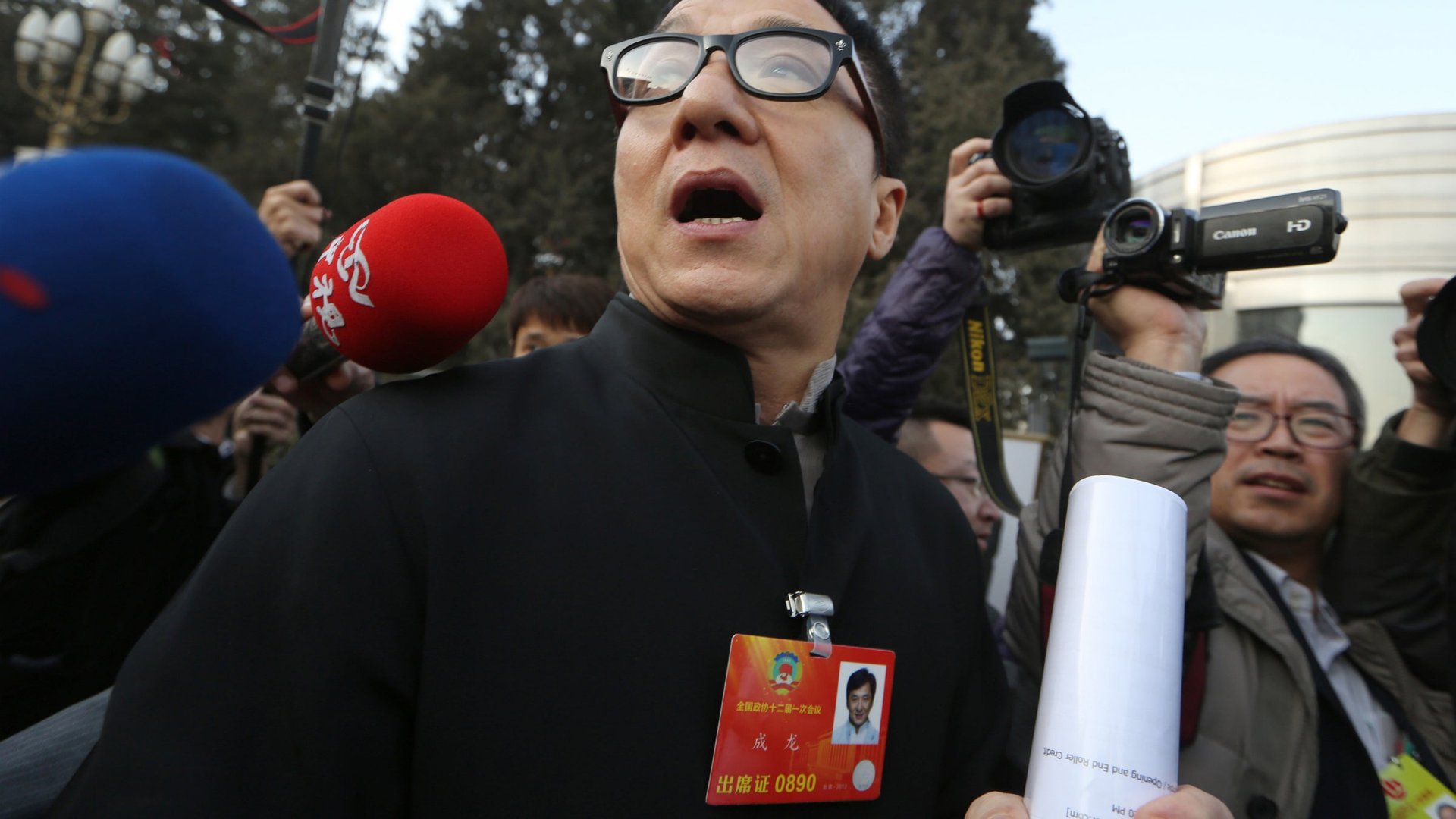Jackie Chan wants to keep Chinese relics in China, except for the ones he owns
Hong Kong celebrity institution Jackie Chan isn’t just an official “cultural ambassador” for the Chinese government—he’s the “ambassador for the return of relics“ from Beijing’s Old Summer Palace, which Western forces looted during the Opium War.


Hong Kong celebrity institution Jackie Chan isn’t just an official “cultural ambassador” for the Chinese government—he’s the “ambassador for the return of relics“ from Beijing’s Old Summer Palace, which Western forces looted during the Opium War.
That’s why it’s strange that he now wants to donate four ancient buildings from Huangshan, a mystical mountain in Anhui province, to a university in Singapore. It’s an irony that hasn’t been lost on mainland internet users, many of whom are perplexed and outraged that Chan would give Chinese cultural relics to foreigners. “Huangshan people strongly demand the buildings return home,” a user called Huizhouxiaobuyi wrote on a Weibo micro-blogging service.
The houses, which Chan bought for his now-deceased parents 20 years ago, were ravaged by termites in the last few years, leaving Chan fumbling with how properly to care of the remaining structures. The martial arts phenom now believes that Singapore University of Technology and Design will be able to preserve the houses.
Though art repatriation is persistently controversial, China’s situation is unusually political. Most notable is the 2009 controversy that erupted when auction house Christie’s announced that it would be putting two Qing Dynasty bronze animal heads owned by Yves Saint Laurent on the block in a Paris auction. This upset both the Chinese government and the public, as the heads were thought to be among the 12 Chinese zodiac busts in the Old Summer Palace looted during the Opium War. The Chinese government pressed Christie’s to pull the items. Christie’s declined to do so. An unlikely hero emerged, though—a Chinese antique collector ultimately won the auction by telephone for $39.6 million. The buyer then refused to pay, in what he saw as patriotic protest.
The issue was so controversial that an action movie called CZ12 (which stands for “Chinese Zodiac 12”) was released in December 2012—starring Jackie Chan (view the trailer here). Fighting an international conspiracy embedded in a Christie’s like auction, Chan ultimately liberates the animal heads from imperialist hands.
Chan was inspired to write, direct, produce and star in the movie by the Christie’s auction, which he called “shameful” at the time. ”I wish all of the national treasures would be returned to their own nations and all races’ cultures would receive equal respect,” said Chan, in a ceremony last November commemorating the animal heads.
Originally from Hong Kong, Chan has long ingratiated himself to the Chinese Communist Party, adopting an increasingly nationalist cast to his public persona in recent years. His fondness for communism has little dampened the outrage erupting over the past few days online.
Still, as an archaeologist with the Chinese Academy of Social Sciences told the China Daily, those judging Chan would do well to consider the broader context of China’s regard for historical preservation.
“Lots of ancient buildings have been demolished by real estate developers in many cities,” said Liu Qingzhu, the archaeologist. Apparently, some 40,000 historical artifacts have gone missing in China in the last three decades, according to official estimates—and construction projects destroyed more than half of those.